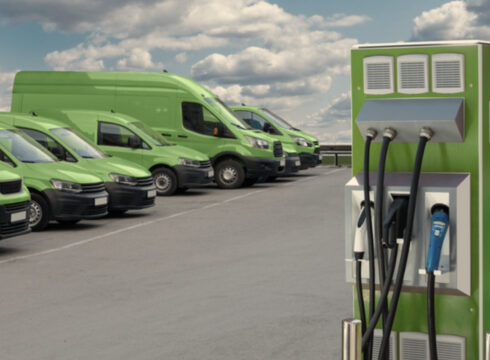In India, last-mile mobility and deliveries account for 66% of daily trips, which accounts for around 200 million journeys
Electrifying last-mile deliveries promises a more sustainable supply chain while delivering tangible benefits to businesses, drivers, and the environment alike
With India setting its sights on achieving zero net emissions by 2070, it is steadfastly working toward electrifying over 30% of new vehicles by 2030
Inc42 Daily Brief
Stay Ahead With Daily News & Analysis on India’s Tech & Startup Economy
In recent years, the push towards greener and sustainable mobility has been continually increasing. One of the core challenges we’ve been facing with the rising pollution is caused by ICE vehicles.
With the rapid growth in ecommerce and urbanisation, the number of delivery vehicles on the road has surged. It adds to air pollution, traffic congestion, and greenhouse gas emissions.
Electrifying last-mile deliveries can significantly address this challenge by promising a more sustainable supply chain while delivering tangible benefits to businesses, drivers, and the environment alike.
The Urgency Of Electrifying Last-Mile Deliveries
In India, last-mile mobility and deliveries account for 66% of daily trips, which accounts for around 200 million journeys. While it has been facilitating convenience and connectivity across the nation, they are one of the major contributors to the rising pollution levels.
The connection is clear: more kms covered equals a heavier environmental toll. Electric vehicles (EVs), being cleaner, greener, and more energy-efficient compared to traditional internal combustion engine (ICE) vehicles, hold the potential to drastically reduce pollution when used in delivery fleets.
The last-mile delivery model used by businesses these days could be more optimal. Currently, individual drivers usually have to use their own vehicles for making deliveries for different brands.
They have to continually switch between multiple platforms for securing orders, from grocery delivery, ride-hailing, food delivery, and logistics apps. This process becomes inefficient since drivers can not anticipate which brand will have higher demand at specific times or locations.
It exhausts drivers, increasing both their time spent and costs. This approach doesn’t support environmental goals or ensure long-term economic sustainability.
Fleet Electrification: Powering Sustainability In Supply Chains
The global automotive industry is undergoing a paradigm shift, transitioning from fossil fuels to alternative energy sources. Given the mounting pollution levels and natural resource depletion, environmentally conscious nations are increasingly turning to electric vehicles.
With India’s commitment to reduce carbon emissions by one billion tonnes by 2030, the country is promoting the use of electric cars as the primary transportation for commuters. Over the past few years, the electric vehicle industry has experienced remarkable growth.
Further, with India setting its sights on achieving zero net emissions by 2070, it is steadfastly working toward electrifying over 30% of new vehicles by 2030. This is where tech-driven companies come into play, revolutionizing the game by providing EVs as a service. Their innovative platform-based approach is aimed at promoting sustainability across the board.
A complete shift to electric vehicles can significantly diminish the carbon footprint associated with ICE two-wheelers, commonly used for last-mile deliveries. Simultaneously, tech-savvy companies are redefining the driver experience.
They are establishing an ecosystem where drivers can seamlessly switch between different service-based platforms based on demand, optimizing vehicle utilisation and boosting driver earnings.
Modern platforms, integrated with AI, facilitate the efficient management of vehicle charging and battery swapping. Concerns regarding charging infrastructure and battery availability are being addressed through real-time notifications, guiding drivers on when and where to charge or swap batteries, effectively eliminating range anxiety.
Huge Job Creation Opportunity
In the realm of last-mile logistics, the prospect of significant job creation looms large.
This intriguing opportunity allows delivery personnel to switch to electric vehicles, presenting an environmentally friendly solution without requiring any financial investment on their part.
This change has the potential to increase both employment and sustainability in the delivery industry.
Charting The Course Ahead
Electrifying last-mile deliveries not only significantly reduces carbon emissions but also yields sustainable long-term operational costs when compared to traditional petrol-powered vehicles.
It will also lead to cleaner air, improved efficiency, and a genuinely sustainable supply chain. This is in line with India’s vision of electrifying the country’s fleet by 2030 while keeping the efficiency of deliveries intact.
As we move towards an electrifying fleet, we are transforming last-mile mobility and forging a path towards a greener and prosperous future.
Note: We at Inc42 take our ethics very seriously. More information about it can be found here.


